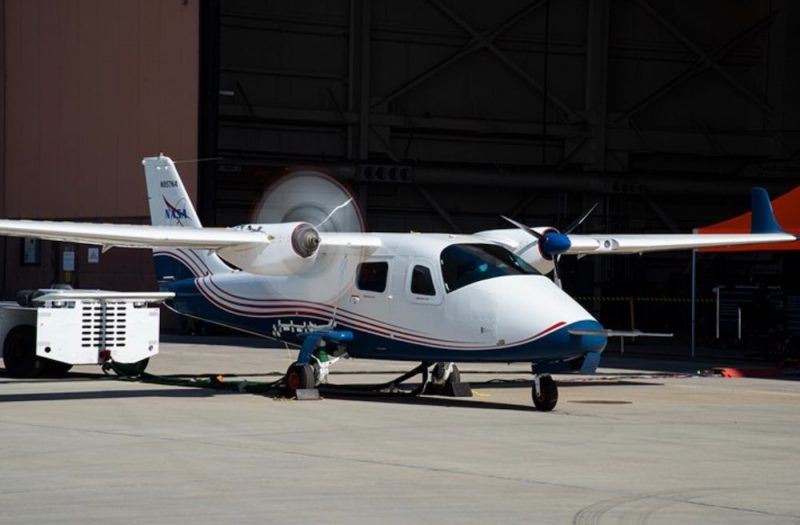NASA Aeronautics is nearing the end of ground tests on its all-electric experimental aircraft, the X-57 Maxwell, and is preparing to install batteries in advance of plans to take flight later this year.
The X-57 Maxwell experimental electric aircraft is being used to test and determine the airworthiness of electrified aircraft technologies such as battery technology, electric motor capabilities, and distributed electric propulsion.
It is set to take flight at some point later in the year, and NASA says it is nearing the end of ground testing and was being prepared for the installation of batteries.
“The X-57 project has made substantial contributions to the field of electric aircraft propulsion as an initial pathfinder building a knowledge base of expertise that is influencing industry standards and contributing to future electric vehicle demonstrations,” said Heather Maliska, X-57 project manager at NASA’s Armstrong Flight Research Center in Edwards, California.
Little else was said about the X-57 and the results of recent ground tests. The modified Tecnam P2006T – which NASA Aeronautics took delivery of back in late-2019 – had its gasoline powered engine replaced with electric power engines and batteries, and NASA expects its experimental aircraft with its high aspect ratio wing to inform standards for future electric aircraft.
The X-57 began operational testing as an integrated aircraft in early 2021, a process designed to put the aircraft through real-world stresses as well as begin to develop certification standards for emerging electric aircraft.
NASA is also working on the Electrified Powertrain Flight Demonstration (EPFD) project, which is working with industry and academia to build and fly aircraft with hybrid electric megawatt power trains to demonstrate the viability of the technology for commercial aircraft.
Joshua S. Hill is a Melbourne-based journalist who has been writing about climate change, clean technology, and electric vehicles for over 15 years. He has been reporting on electric vehicles and clean technologies for Renew Economy and The Driven since 2012. His preferred mode of transport is his feet.

